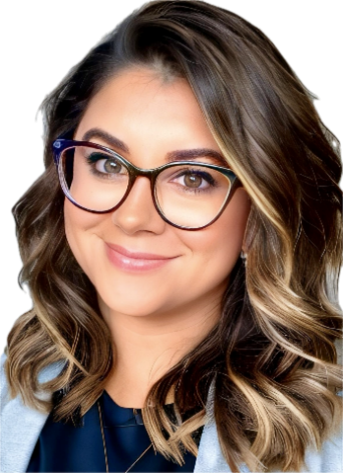Amanda DeDiego, PhD, LPC, NCC, BC-TMH, ASC

Owner of DeDiego Counseling and Consulting, LLC
Associate Professor of Counseling, University of Wyoming
Member Since 2011
ACA is a community of diverse, vibrant counselors and educators who are changing lives and the world at large. Amanda DeDiego, associate professor of counseling at the University of Wyoming and owner of a private counseling practice in Casper, got her first exposure to counseling before she even realized it when she was in middle school. Instead of taking PE — “I hated running!” — she opted to participate in an adventure-based counseling program called “Niyelo” at her school in the Atlanta suburbs. The rest, as the saying goes, is history, with one exception: today Amanda runs half-marathons!
We spoke to Amanda about her experience. Read on for more from that conversation, which has been edited for clarity.
Tell us a bit about your professional background.
I’m originally from Atlanta, but I’ve lived in Casper, Wyoming, for the last eight years. I did my undergraduate (psychology) and masters (community counseling) as a civilian at a predominantly military college, the University of North Georgia. I then moved to Knoxville where I got my PhD in counselor education from the University of Tennessee.
Talk about your current job.
I run a graduate hybrid counseling program at the University of Wyoming where I train rural professionals how to be counselors. The program didn’t exist before I came here. I teach primarily on the weekends. I also own a private practice in Casper where I work with a lot of clients who have chronic health issues on top of mental health issues. I also work with individuals in the community who don’t feel like they have a lot of options. I have clients all over the state and I’m licensed in both Wyoming and Colorado. And in my research work, I focus a lot on barriers to access to care, health disparities and what we as clinicians need to do at an individual and a policy level to address those barriers.
What drew you to pursue a career in counseling?
As an undergrad, I spent a semester as an intern for the same adventure-based program I attended as middle schooler. As an intern, I worked with students at an alternative high school where I facilitated team-building exercises at the on-site ropes course, addressing issues such as self-esteem, self-worth, accountability, teamwork, and overcoming obstacles. I didn’t even know counseling was a career option. I got totally hooked and just loved it! Fifteen years later, I still love what I’m doing.
Talk about your areas of expertise and why you chose those areas?
I do a lot of trauma-focused work with complex post-traumatic stress disorder (PTSD). When you work in a rural community, you do what your community needs and your specialty chooses you. The rates of suicide in Casper and in the state are high [Wyoming has the highest suicide rate per capita in the nation, according to the Wyoming Department of Health]. There’s also a really strong stigma in the community associated with suicide. So trauma, by necessity, quickly became a focus and one that I find really meaningful. I also do a lot of work with the trans community. When I first came out here, there were not a lot of providers who felt they were trained to support trans individuals, but that’s starting to change.
What is something most people may not know about you?
I just got trained in March 2024 to do ketamine-assisted therapy. I’m an eye movement desensitization and reprocessing (EMDR) clinician. I’ve also received advanced EMDR training to work with complex post-traumatic stress disorder cases, but I kept running into situations where I couldn’t work through a client’s trigger. In chatting with my network, I got connected to a nurse anesthetist who prescribes ketamine. After talking with her to learn more and how to do the work responsibly and safely, she told me I needed to get trained. That led me to a ketamine-assisted therapy training program at the Psychedelic Research and Training Institute (PRATI) in Colorado. Right now, I work with psycholytic (low) dosages in my office and I work with a prescriber. We hope to start offering psychedelic IV services (high dosages) in the next year. The ketamine temporarily switches off the ego defense as a glutamate inhibitor. I can then go in and work on deep-seated traumatic events that someone ordinarily wouldn’t be able to talk about or even remember and reprocess them using my EMDR skillset. The progress is amazing. It’s like magic!
What advice do you have for others in the profession?
Care for yourself because this is tough work. It’s important that our work not be everything about us. You have to have areas of interest outside of work or you’re going to drown.
What one piece of advice has someone given you that you’ve found helpful?
It came from my therapist and that is: You can’t save them all, no matter how much you want to. It’s something that I’m working on because it’s really hard. You become so attached to some of your clients and you want to serve all the needs in the community. The problem is that there is nothing left for yourself, and you get really burned out.
What do you value most about being an ACA member?
What I value most is the representation and advocacy work. There are so many things that happen with laws and policy at both the federal and state level that impact my work and being able to reach out to ACA to get support and guidance has been invaluable. For example, they were so helpful in passing the Counseling Compact in my state.
